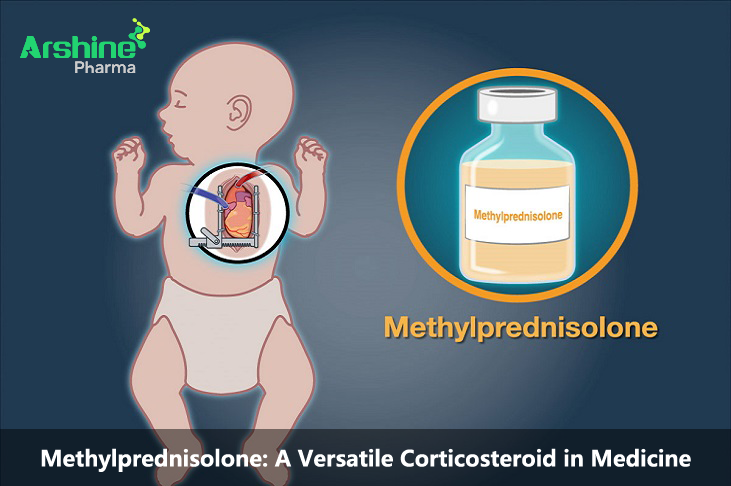
Introduction:Methylprednisolone, a synthetic glucocorticoid, has established itself as a versatile medication in the field of medicine. With its potent anti-inflammatory and immunosuppressive properties, methylprednisolone plays a crucial role in the management of various medical conditions. This article aims to explore the role of methylprednisolone in medicine, including its properties, mechanisms of action, therapeutic indications, dosage, potential side effects, and current research. By understanding its significant contributions to patient care, we can appreciate the value of methylprednisolone in medical practice.
Properties and Mechanisms of Action: Methylprednisolone belongs to the class of corticosteroids, which are synthetic versions of the hormones naturally produced by the adrenal glands. It exhibits anti-inflammatory, immunosuppressive, and anti-allergic properties. Methylprednisolone acts by binding to glucocorticoid receptors in target cells, resulting in the modulation of gene expression and the regulation of various biological processes. It reduces inflammation by suppressing the production of inflammatory mediators, inhibiting immune cell activation, and decreasing the migration of immune cells to sites of inflammation.
Therapeutic Indications: Methylprednisolone is widely used in the treatment of numerous medical conditions across different specialties. It is indicated in inflammatory and autoimmune disorders, such as rheumatoid arthritis, systemic lupus erythematosus, and inflammatory bowel disease. Methylprednisolone is also employed in the management of allergic conditions, including asthma and allergic rhinitis. Additionally, it plays a crucial role in the treatment of various dermatological, respiratory, and endocrine disorders.
Dosage and Administration: The dosage of methylprednisolone varies depending on the specific medical condition being treated, the severity of the condition, and individual patient factors. It is available in various formulations, including oral tablets, intravenous injections, and topical preparations. The dosage regimen may involve an initial high-dose "pulse" followed by a gradual tapering to a lower maintenance dose. It is crucial to follow the prescribed dosage and administration instructions provided by healthcare professionals.
Anti-inflammatory and Immunosuppressive Effects: Methylprednisolone's anti-inflammatory effects are instrumental in reducing tissue inflammation and minimizing damage caused by an overactive immune response. It inhibits the production of pro-inflammatory cytokines and mediators, such as interleukins and prostaglandins, thereby suppressing the inflammatory cascade. The immunosuppressive properties of methylprednisolone are vital in the management of autoimmune diseases, as it dampens the aberrant immune response that contributes to tissue damage.
Potential Side Effects and Safety Considerations: Methylprednisolone, like other corticosteroids, may cause a range of potential side effects, especially with long-term use or high-dose regimens. Common side effects include weight gain, fluid retention, mood changes, increased blood pressure, and elevated blood sugar levels. Prolonged use may lead to more serious effects, such as adrenal suppression, osteoporosis, cataracts, and increased susceptibility to infections. Close monitoring and appropriate risk management strategies are essential when using methylprednisolone.
Current Research and Future Directions: Ongoing research aims to further optimize the use of methylprednisolone and explore its potential in novel therapeutic applications. Studies are investigating its role in combination therapies, minimizing side effects through targeted drug delivery systems, and identifying patient subpopulations that may benefit most from its use. Additionally, efforts are being made to enhance our understanding of the underlying mechanisms of methylprednisolone's actions to refine its clinical application.
Conclusion: Methylprednisolone has become a cornerstone medication in medical practice, offering a wide range of therapeutic benefits across multiple medical specialties. With its potent anti-inflammatory and immunosuppressive properties, it effectively manages inflammatory and autoimmune disorders, allergic conditions, and various other medical conditions. However, careful consideration of the dosage, duration of treatment, and monitoring for potential side effects is essential. Ongoing research will continue to shape our understanding of methylprednisolone and its role in patient care, ensuring its safe and effective use in diverse clinical settings.
